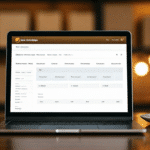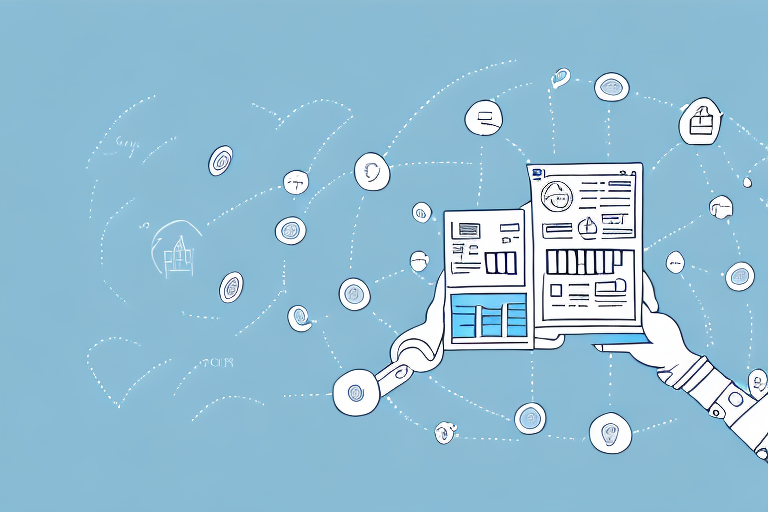Understanding UPS Third Party Billing: What You Need to Know
If your business relies on shipping packages regularly, leveraging UPS third party billing can be a strategic move to save time and money while streamlining your shipping processes. This service allows a designated third party to handle the shipping charges, offering various benefits tailored to businesses of different sizes. In this comprehensive guide, we'll explore the ins and outs of UPS third party billing, including how it works, its advantages, how to sign up, and best practices for managing your account.
What is UPS Third Party Billing and How Does It Work?
UPS third party billing is a service that enables a third party to pay for the shipping charges associated with your shipments. This is particularly useful for businesses that ship a high volume of packages, as it simplifies the payment process by consolidating charges into a single invoice.
Here's how it works:
- Provide the Third Party's UPS Account Number: During the shipping process, you enter the third party's UPS account number in the shipping invoice.
- Shipment Processed: UPS processes your shipment as usual, but the charges are billed to the third party's account.
- Monthly Invoicing: The third party receives a consolidated invoice detailing all shipping charges incurred over a billing cycle, typically monthly.
This arrangement allows you to manage your shipping costs more efficiently, especially if the third party offers discounted rates based on volume.
Benefits of Using UPS Third Party Billing
Implementing UPS third party billing offers several advantages for businesses:
- Time Savings: Reduces administrative tasks by consolidating billing, allowing your team to focus on core business activities.
- Cost Efficiency: Access to discounted shipping rates from the third party can lower overall shipping expenses. According to UPS, businesses can save up to 10% on shipping costs through third party billing.
- Streamlined Processes: Simplifies the shipping and payment process, making it easier to track and manage shipments.
- Enhanced Shipping Management: Provides comprehensive reports and data analytics to help optimize your shipping strategy.
- Flexibility: Suitable for businesses of various sizes, from small startups to large enterprises with extensive shipping needs.
How to Sign Up for UPS Third Party Billing
Getting started with UPS third party billing is straightforward:
- Ensure You Have a UPS Account: If you don't have one, sign up for a UPS account here.
- Contact UPS or the Third Party: Reach out to UPS customer service or the third party providing the billing service to express your interest.
- Provide Necessary Information: You may need to furnish details such as your business information, shipping volume, and the third party's UPS account number.
- Complete the Application: Fill out any required forms and submit them for review.
- Approval and Setup: Once approved, UPS will set up your account to enable third party billing. You'll receive instructions on how to enter the third party's account details during shipping.
Eligibility typically requires a minimum shipping volume and a good standing UPS account. It's advisable to check the latest requirements on the UPS website or consult with a UPS representative.
Types of UPS Third Party Billing Options
UPS offers various third party billing options to cater to different business needs:
- Weekly Payment: The third party is billed on a weekly basis for all shipping charges incurred during that week.
- Consolidated Billing: Consolidates charges from multiple accounts into a single invoice, simplifying financial management for businesses with multiple departments or locations.
- Authorized Payment Methods: Allows the third party to pre-authorize payments via bank account or credit card, ensuring timely and automated payments.
- UPS Account Number Billing: Utilizes the third party's own UPS account number to manage and pay for shipping charges directly.
- UPS CampusShip: Designed for large organizations with multiple users, this option provides individual logins while consolidating billing for the entire organization.
Choosing the Best UPS Third Party Billing Option for Your Business
Selecting the appropriate UPS third party billing option depends on your business's specific needs and operational scale:
- Small Businesses: Weekly payment options may suffice, offering simplicity and ease of management.
- Medium to Large Enterprises: Consolidated billing or UPS CampusShip can provide better control and oversight for multiple departments or high shipping volumes.
- Preference for Automation: Authorized payment methods can streamline financial operations by automating invoice payments.
Assess your business's shipping volume, administrative capacity, and financial management preferences to determine the most suitable billing option. Additionally, consider the level of customer support and resources provided by UPS for each billing type.
Common Mistakes to Avoid When Using UPS Third Party Billing
To maximize the benefits of UPS third party billing and avoid potential pitfalls, be mindful of the following common mistakes:
- Incorrect Account Number Entry: Always verify the third party's UPS account number to prevent billing errors.
- Neglecting Invoice Reviews: Regularly check your invoices for accuracy, ensuring that all charges align with your shipping activities.
- Lack of Communication: Maintain clear communication with the third party to ensure timely payments and address any discrepancies promptly.
- Ignoring Shipping Data: Utilize the shipping data and reports provided to analyze and optimize your shipping strategies.
Tips for Managing Your UPS Third Party Billing Account
Effective management of your UPS third party billing account can enhance your shipping operations and financial planning:
- Regular Invoice Audits: Schedule periodic reviews of your invoices to detect and rectify any inconsistencies or errors early.
- Leverage Promotions and Discounts: Stay informed about UPS promotions and discount opportunities to further reduce shipping costs.
- Optimize Shipping Processes: Use the insights gained from shipping data to improve packaging, routing, and carrier selection.
- Automate Payments: Set up automatic payments to ensure invoices are settled promptly, avoiding late fees and maintaining good credit standing.
- Utilize UPS Tools and Resources: Take advantage of UPS's online tools, such as the UPS Billing and Payment Portal, to monitor your account activity and manage payments efficiently.
- Engage with Customer Support: Don't hesitate to reach out to UPS support for assistance or clarification on billing matters.
In summary, UPS third party billing is a valuable service for businesses looking to streamline their shipping processes and manage costs effectively. By understanding how it works, choosing the right billing option, and adhering to best practices in account management, your business can fully leverage the benefits of this service.




















